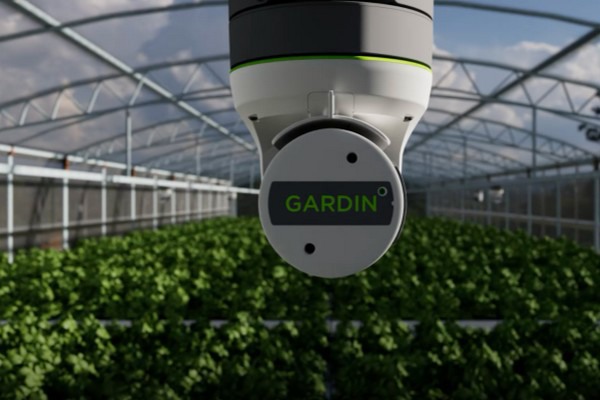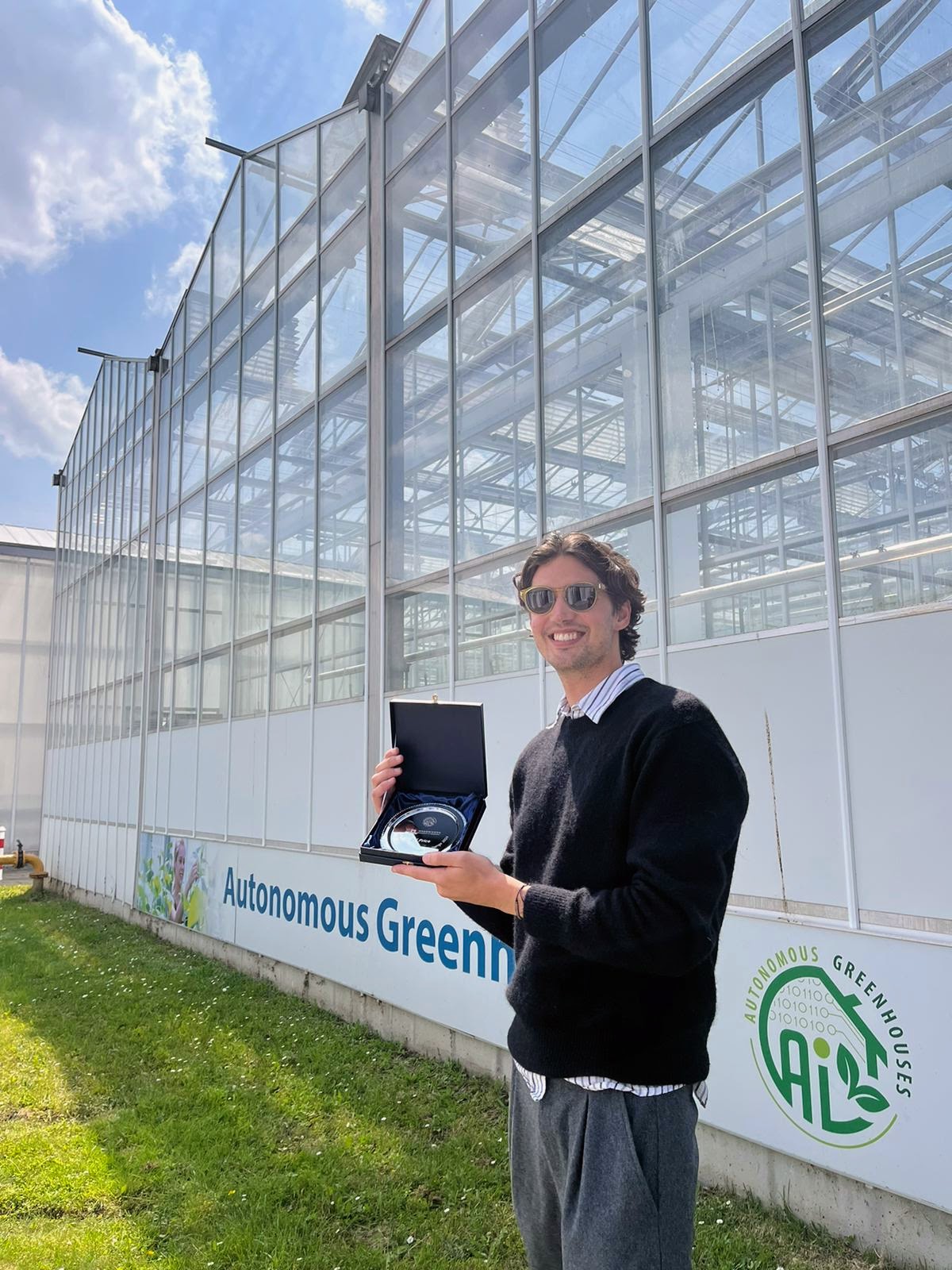Autonomous Growing with Photosynthesis
By Julian Godding, Lead Data Scientist, Gardin
November 2024

Image Credit: Gardin
As featured in Onder Glas - Dutch Translation
In just the past few years, autonomous growing has gone from a distant dream to becoming a reality. At the heart of this transformation is a deeper understanding of the plant biology to different environments, and leading the charge is Gardin, an innovative agtech startup. Their groundbreaking sensor which can autonomously measure the efficiency of plant photosynthesis, is changing the way we think about greenhouse management.
Daily Photosynthesis Integral (DPI)
Gardin's product allows growers, and eventually algorithms, to monitor the daily light assimilation by plants using a feature it calls the Daily Photosynthesis Integral (DPI). Unlike traditional methods such as Daily Light Integral (DLI), which simply tally up the amount of light reaching the greenhouse, DPI focuses on the light that plants actually absorb and use for photosynthesis. This nuanced approach provides a far more accurate picture of plant productivity.
Providing Fresh Insight
Gardin's DPI works by combining an estimate of "leaf-level PAR" — the photosynthetically active radiation at the leaf level — with the quantum yield of Photosystem II (PSII). This combination allows them to calculate the electron transport rate within the plant leaves, offering insights that were previously out of reach. It's akin to measuring exercise not just by step count, but by calculating actual calories burned—taking into account your speed, oxygen levels, and heart rate.
Applying DPI in the real world - Wageningen University Autonomous Greenhouse Challenge
The real excitement comes from how DPI is being applied in the real world. Gardin has been putting this technology to the test in the Wageningen University Autonomous Greenhouse Challenge, a competition pushing the boundaries of technology in agriculture. Teams are tasked with controlling greenhouse environments using absolutely zero human intervention for almost three months, relying instead on their customised algorithms.
Greenhouse Challenge Results - High Quality Yield
Gardin is part of the team MuGrow featuring TU Delft, Rijk Zwaan and Wageningen University. The team's approach leverages DPI to control the lighting, shading and CO2 strategy in the greenhouse. By focusing on actual photosynthetic production rather than just the amount of light added, they're able to alter the LED lighting to maintain a consistent level of production at the lowest cost and prevent plant stress - the starting point for any farm optimisation. The results are impressive: MuGrow has become the first team in the competition to yield high-quality red fruits and harvest the tomatoes.

Julian Godding, Lead Data Scientist, Gardin. Image Credit: Gardin
Delivering Tangible Benefits to Growers
This isn't just about taking part in a competition; it's about proving that autonomous growing can deliver tangible benefits. With DPI, growers can manage their LED strategy, optimise their 24-hour temperature and improve yield forecasting. This leads to improved resource efficiency, reduced electricity costs, and improved planning. Perhaps most importantly, it helps prevent those unexpected yield shocks that can occur when plants aren't achieving their targets.
Greenhouse Management with Precision
The implications for greenhouse management are profound. Plants effectively communicate their needs to the Gardin sensor, and algorithms can adjust the greenhouse environment accordingly. This level of precision automation will make greenhouse cultivation more sustainable, efficient, and scalable; empowering farmers to grow their businesses. Daily Photosynthesis feature is available to all of Gardin's customers worldwide, enabling them to leverage these measurements during the current lighting season.
In a world facing increasing demands for affordable, sustainable and nutritious food production, a better understanding of the plant is essential. Gardin's technology shows that future is closer than we think.
To learn more, please visit our website and reach out via www.gardin.ag